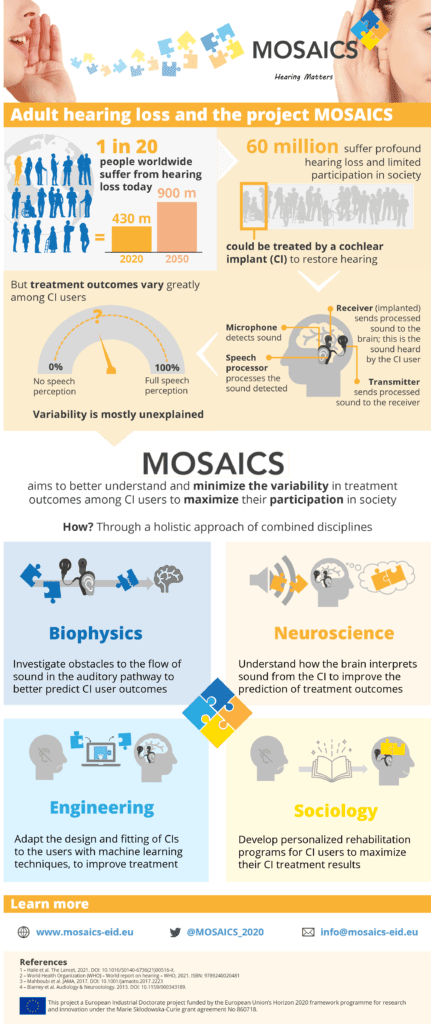Objectives
MOSAICS is a European Industrial Doctorate (EID) programme that has now ended. It trained four Early Stage Researchers (ESRs) to become experts in auditory implants to achieve minimized outcome spread and maximized participation in society. The ESRs have had the unique opportunity to be part of a multidisciplinary training programme, learning from the industrial excellence of the largest global hearing implant manufacturer and from the outstanding research expertise of the leaders in the field of hearing research. Within this framework the specific objectives of MOSAICS were:
- to investigate the “body functions” by evaluating the neuronal activity following sound and speech stimuli at the level of the cochlea, the brain stem, and the cortex, using biophysics methods
- to adopt an engineering approach and the aid of artificial intelligence (AI) to explore “environmental factors”, obtaining insight into the fitting issues related to outcome spread
- to address the cognition (brain) effects on process-related outcome measures in relation to CI performance
- to evaluate the societal benefits of CI-specific rehabilitation programmes and recipients’ social support.


